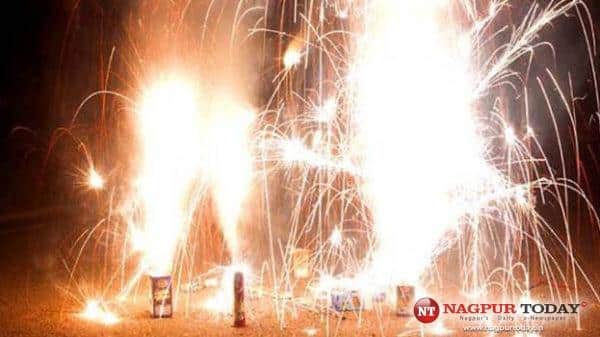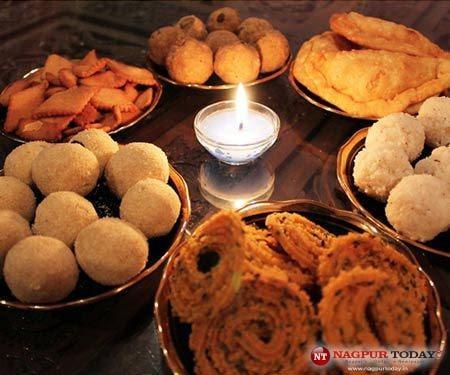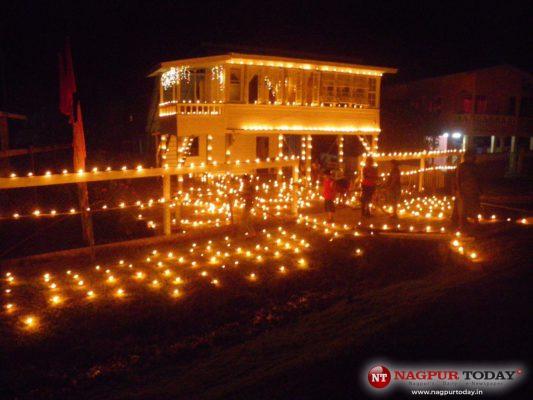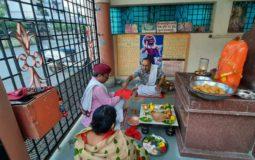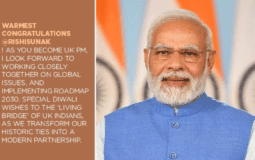
Nagpur: Every home in Nagpur has been lit up with colourful lanterns and glowing lamps as Nagpurians celebrated the Festival of Lights – Diwali – with traditional fervour and gaiety.
It was a time for feasts, prayers and fireworks. Diwali is one of the most important festivals of Hindus. People illuminated oil lamps to symbolise the triumph of light over darkness and good over evil. Every home was dazzling with oil lamps and colourful rangolis to welcome good luck and positivity into their lives. Families gathered to offer prayers, light fireworks and enjoy festive meals. People visited friends and family and exchanged sweets, gifts and good wishes.
For the past two years, due to the Covid-19 pandemic, festivities were held with restrictions or were cancelled altogether. However this year, with restrictions being lifted, people are celebrating the festival with gusto.
The major markets in the Second Capital of Maharashtra witnessed a brisk business as Nagpurians made a beeline outside various shops selling utensils, gold ornaments and Ganesh and Lakshmi idols on the pious occasion of Dhanteras on Saturday, October 22.
Dhanteras, or Dhanatrayodashi, is celebrated a day or two prior to Diwali, the festival of lights. This festival is usually celebrated with great gusto, since it is considered to be one of the most significant of all Hindu festivals. One of the key aspects of this day is the purchase of gold and silver items — typically in the form of jewellery — along with some utensils. Shops selling utensils registered brisk sales while the jewellery shops were packed with people purchasing gold ornaments, coins and other related items. Similar was the scene at shops selling Ganesh and Lakshmi idols as people scrambled to pick up the best pieces for the Lakshmi puja.
On Lakshmi Puja, on Monday, October 24, people celebrated the day by praying to Goddess Lakshmi, lighting earthen lamps, sharing sweets, and bursting firecrackers. The frenzy of bursting crackers was to be seen to be believed. The festival is celebrated to mark the return of Lord Ram to Ayodhya after his 14-year-long exile.
People celebrated Lord Krishna’s victory over the demon Narakasura on the occasion of Diwali by waking up before the sunrise. After a bath with ‘utna’, people burst crackers and enjoyed the delicacies such as chiwda, sev, anarsa, laddoo, shankarpale, chakli, and many other mouth-watering stuff of their choice.
For Bengalis, Diwali coincides with Shyama Puja or Kali Puja, which takes place after sunset. Devotees offered Goddess Kali all kinds of sweets, lentils, rice, and even non-vegetarian food like fish and meat.
Diwali (Lakshmi Pujan/Amavasya) is the darkest night of the year. And one has been taught to overcome darkness with light. When the moon is not shining, neither the sun, sky is dark; the nation glitters. Proud of being part of such a wise and one of the finest traditions.




